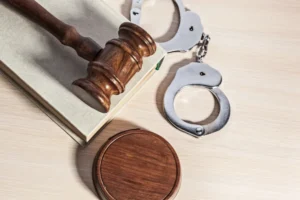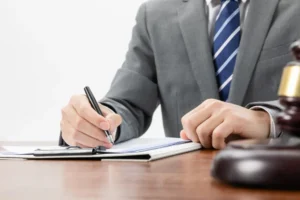
Importance
Civil litigation is a crucial legal process for resolving disputes between individuals or legal entities, not involving criminal offenses. Civil cases often involve claims for damages, contract enforcement, or protection of various civil rights.
The outcome of civil cases can significantly impact the daily lives of the parties involved, whether in terms of finances, property, or business relationships. Therefore, understanding the litigation process and thorough preparation are essential for those entering the civil justice system.
Litigation Steps
Civil litigation consists of 5 key steps, each of which is important and must be carried out carefully to achieve the best results:
Step 1: Pre-trial Preparation
Pre-trial preparation is the first and most crucial step in litigation. At this stage, the plaintiff should:
Gather evidence: This is a critical step. Collect all relevant documents, photographs, videos, or witness testimonies. This evidence will be decisive in the case consideration.
Consult a lawyer: Consult a lawyer specializing in that type of civil case to assess the viability of the case, plan strategies, and prepare for a robust lawsuit.
Good preparation will help ensure readiness for the proceedings and increase the chances of winning the case.
Step 2: Filing the Lawsuit
Once prepared, the next step is filing the lawsuit with the court, which includes:
Writing the complaint: The complaint must detail the case facts, legal arguments, and requests for the court’s consideration. A clear and comprehensive complaint will help the court better understand the case issues.
Paying court fees: Court fees must be paid according to the claim amount, which can be substantial in some cases. However, there are channels to request fee exemptions if necessary.
Correct and complete filing will help the case proceed smoothly and avoid dismissal by the court.
Step 3: Court Testimony
Testimony is a crucial step in proving facts to the court, including:
Witness testimony: Witness testimony must be well-prepared. Information should be clear, relevant, and credible.
Documentary evidence: Documents must be presented systematically, explaining the origin and relevance of each piece to the court.
Effective testimony will help build credibility for our side and persuade the court to agree with the facts we present.
Step 4: Closing Arguments
Closing arguments are the final opportunity to summarize key case points to the court, including:
Summarizing facts: Summarize the facts from the testimony concisely and clearly, emphasizing key points supporting our side.
Legal analysis: Explain how the proven facts align with the law and why the court should rule in our favor.
An effective closing argument will reinforce key points and create a lasting impression on the court.
Step 5: Appeals
If dissatisfied with the lower court’s judgment, appeals can be made, considering:
Appeal conditions: Check if the case is eligible for appeal, e.g., if the claim amount meets the legal threshold.
Appeal filing process: Appeals must be filed within the legal timeframe and clearly state the grounds for appeal.
Appeals are a legal right, but careful consideration should be given to the chances of winning and the costs involved.น
Techniques for Successful Litigation
In addition to following the above steps, there are important techniques that will help make litigation successful:
Thorough preparation: Study the facts and relevant laws in detail. Prepare statements and arguments in advance.
Effective presentation of evidence: Use technology to aid presentation, such as displaying images or videos, to make it easier for the court to understand.
Maintaining court etiquette: Show respect to the court and opposing parties. Use polite and reasonable language.
Closely monitoring case progress: Coordinate regularly with the lawyer and strictly follow court orders.
Negotiation and mediation: Consider opportunities for settlement, which can save time and costs.
Using these techniques along with strict adherence to litigation procedures will increase the chances of winning the case.
Conclusion: The Importance of Effective Litigation
Effective civil litigation not only affects the case outcome but is also important for the overall justice system. Careful and ethical litigation helps promote justice and confidence in the judicial process.
Understanding and correctly following the litigation steps, from pre-trial preparation to appeals, will help litigants fully protect their rights and lead to fair case decisions.
Finally, effective litigation not only helps achieve justice in one’s own case but also contributes to improving the legal system and society as a whole.
Frequently Asked Questions (FAQ)
How long does civil litigation take?
The duration of civil litigation depends on the case complexity and court caseload. Generally, it can take from 6 months to 2 years or more, depending on whether there are appeals.
What are the costs involved in civil litigation?
Main costs include court fees, lawyer fees, expert witness fees (if any), and expenses for gathering evidence. These can be substantial depending on the case complexity.
Is it necessary to hire a lawyer for civil litigation?
While the law doesn’t require a lawyer in civil cases, having one will make the proceedings more efficient, especially in legally complex cases.
Are there alternatives to civil litigation?
Yes, alternatives include negotiation, mediation, or arbitration, which may save more time and costs than litigation.
Can you always appeal if you lose in the lower court?
Not always. Appeals must meet legal conditions, such as the claim amount meeting the threshold or requiring permission from the appellate court.
Is it possible to litigate a civil case yourself without a lawyer?
It’s possible but not recommended for complex cases. Self-represented litigants must study the law and court procedures thoroughly and may be at a disadvantage if the other party has a lawyer.
บทความ อื่นๆ
LAWYER MAN & PARTNERS
เราพร้อมที่จะช่วยเหลือคุณในการแก้ไขปัญหาทางกฎหมายของคุณ
เรารู้สึกว่าจำเป็นต้องทำลายกรอบความสัมพันธ์ระหว่างทนายกับลูกค้าแบบเดิมๆ เรามุ่งมั่นที่จะเป็นมิตรและเข้าถึงง่าย พร้อมทั้งติดต่อสื่อสารกับลูกค้าอยู่เสมอ
- +66 96-916-4251
- lawyerman.metapon@gmail.com








